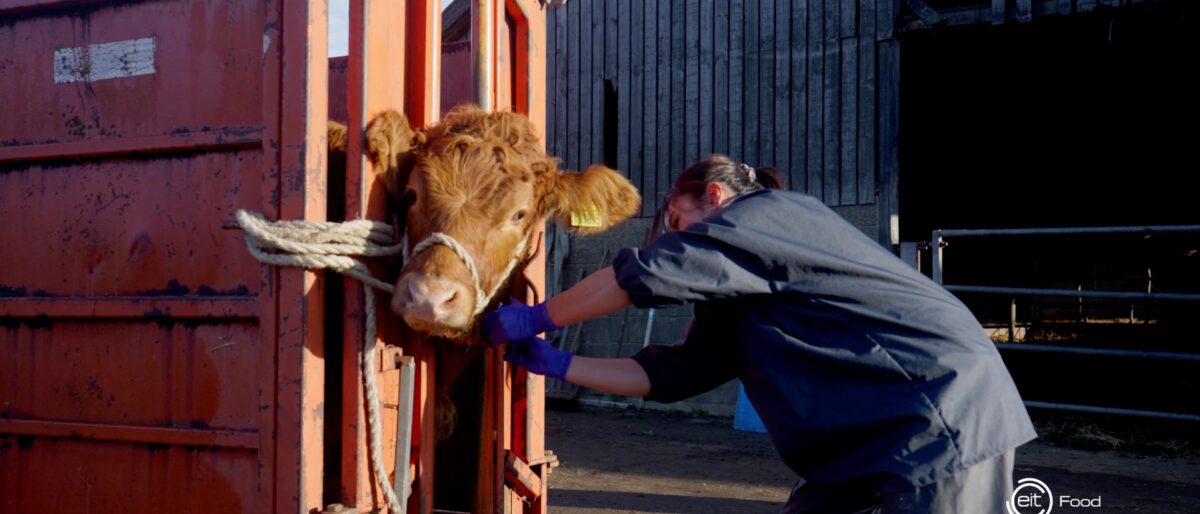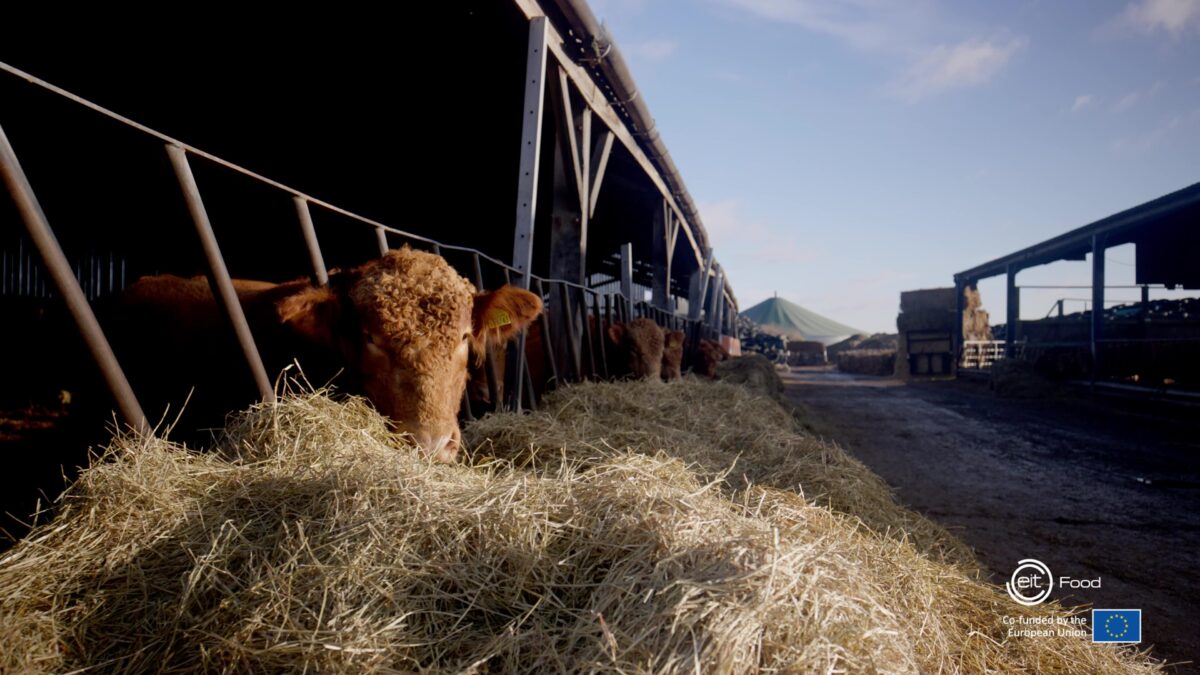
Discover a Day in the Life of a Farm Vet
In this blog, we explore a day in the life of a farm veterinarian who visits different farms to help treat livestock for farmers.
Our EIT Food Day in the Life series is an educational resource aimed at young people and professionals who are interested in the agrifood job market. We profile a wide range of careers in the agrifood sector, interviewing professionals to find out what their job is like, why it is important, and how you could take up the profession.
You will learn:
- What a typical day is like as a farm vet
- The main responsibilities of a farm vet
- Why this industry matters to our wider food system
- How you can take up this career path
Meet Amanda Foo, a farm vet from Chelmsford, Essex, who travels around the countryside to various farms to help treat different animals each day.
Amanda tells us about her job as a farm vet and how you can train to become one too.

What does a typical day as a Farm Vet look like?
Amanda’s job is very variable and therefore, “no one day is the same.” Her role consists of visiting multiple farms on a daily basis, meeting different farmers, and seeing different animals. Her car is her mobile vet surgery that she drives to each of the farms in order to treat the animals.
Amanda works with production animals – dairy, beef, sheep, goats, pigs, and poultry. As she sees a variety of animals, no two days are the same. For example, she could be “doing surgery on a cow in the morning and seeing a sick sheep or goat in the evening.”
A typical day for Amanda is usually split up into 3 activities, emergency work, non-emergency work or administrative work. “For emergency work, I can be going to see a sick animal, or, helping a calving or lambing when they have any difficulties. For non-emergency work, I visit healthy animals on farms for routine visits, such as scanning cows, taking blood samples, coming up with vaccine protocols or health plans to help them through the year.”
Although the farm work is busy, her workday does not end there. After a farm visit, Amanda will go back to her office to collate her notes from the day and run samples she has taken either with a microscope or blood machines. This can help to diagnose an animal's illness to be able to recommend the best treatment and provide the best care.

How can I get involved in this area? What are the pathways into this role?
To become a farm vet, Amanda studied biology, chemistry and maths for A Levels in the UK and then went on to university for 5 years to be able to go to vet school. One of her first roles was as a vet treating small animals before transitioning to a farm vet two years later. Like Amanda, you can study a relevant degree at university to gain the knowledge and skills required to become a farm vet.
At university, Amanda took part in work placements on different farms where she gained work experience, met different farmers and “really enjoyed being out on the farms.” Gaining work experience is an excellent idea to learn on the job and further develop your personable skills to carry out the role effectively.
“There are many ways to be a vet, there's not just one path and you don't have to be incredibly academic. I think communication and being personable is far more important than being the best in your class.”

What are the challenges working as a Farm Vet?
A farm vet holds a lot of responsibility to ensure the safety and welfare of animals and they have a lot of decisions to make to be able to do what is best for the animals in their care. Being in this career means you will need to be confident within your role and have skills such as leadership, teamwork, decision making, problem solving and excellent communication. There is pressure to treat the animals to the best of their ability, but to also support the farmers when they are going through difficult situations with their animals.
A lot of sensitivity and passion is needed for this role. “Being a farm vet means that when we go to see an animal, we have to think about what the implications might be for the farmer, what the implications might be for that animal specifically for its welfare, but also the welfare of the rest of the herds and flocks.”

What is the best part of your job?
“I think one of the most rewarding things as a farm vet is being able to be there for the farmer in an emergency or stressful situation. We are able to make a difference and have a positive impact on the animals.”
The career of a farm vet is an incredibly important role within this industry and our wider food system as they are the people that take care of the production animals that are bred for consumption. They also support farmers when animals are sick during emergency situations and support farmers with routine visits to ensure the health and welfare of the animals.
Amanda describes her job in three words: rewarding, challenging, and exciting.

About EIT Food’s Day in the Life Series
As part of EIT FoodEducators, EIT Food’s Day in the Life Series is a video series that explores the variety of careers that our agrifood system has to offer. The aim of the series is to raise awareness of the range of high-skilled and highly rewarding jobs that the food and farming sector has to offer and inspire younger generations to consider one of these careers for themselves.
More blog posts by EIT Food West

Making f!sh from microalgae and mushroom roots

